On the matter of consent
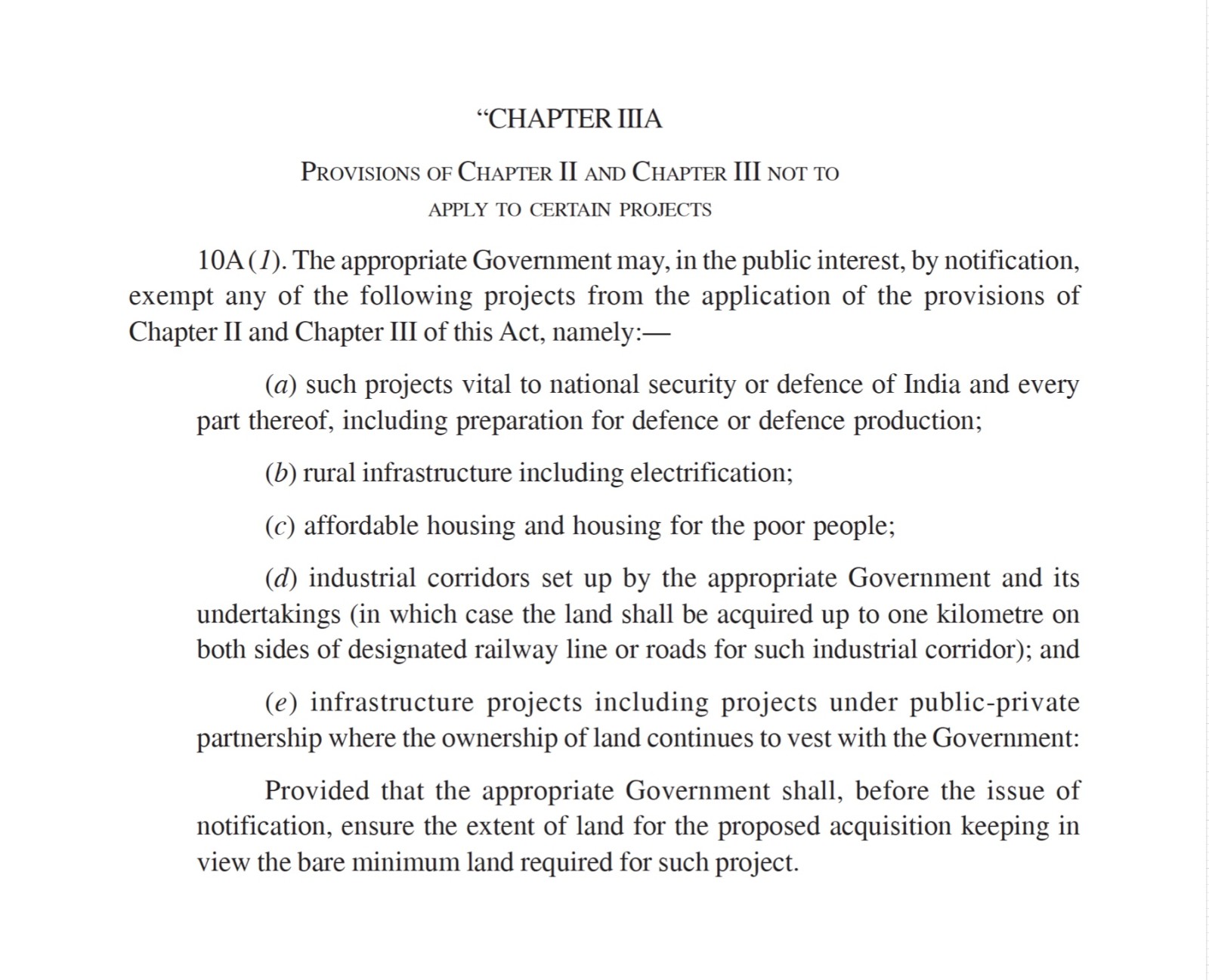
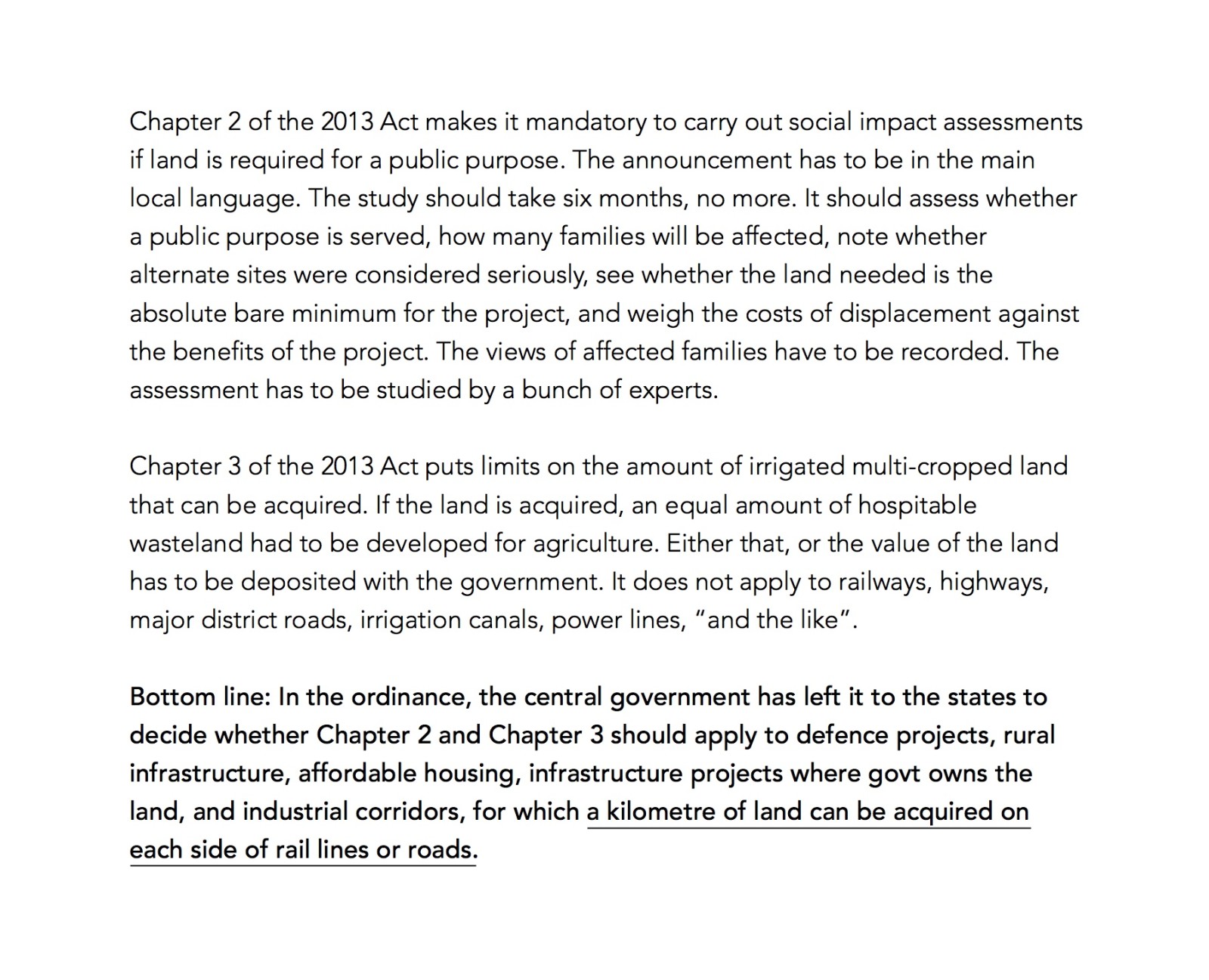
BARUN MITRA | Director | Liberty Institute – There are two key issues here. Particularly for the rural sector, since virtually everyone acknowledges in surveys and anecdotal experience that farmers and their children do not want to continue farming. So in the case of electrification, you’d think it would be easy to get consent. Consent would probably be 100 per cent. So why take out consent from rural areas? If people want to leave, and you’re not able to procure consent, it means that the procurement process is not acceptable to the seller. The second part is, if the deal is acceptable to both, is there a single instance where a project has been held up due to lack of consent? We know that land is a problem in many projects, but in the case of specific projects, can anyone point out land that cannot be acquired? If you can’t get consent, it means that you’re not able to tap the market properly. Either in terms of pricing or something else. Their case could have been stronger if they showed that due to this provision a project had been held up.
When is compensation deemed given?
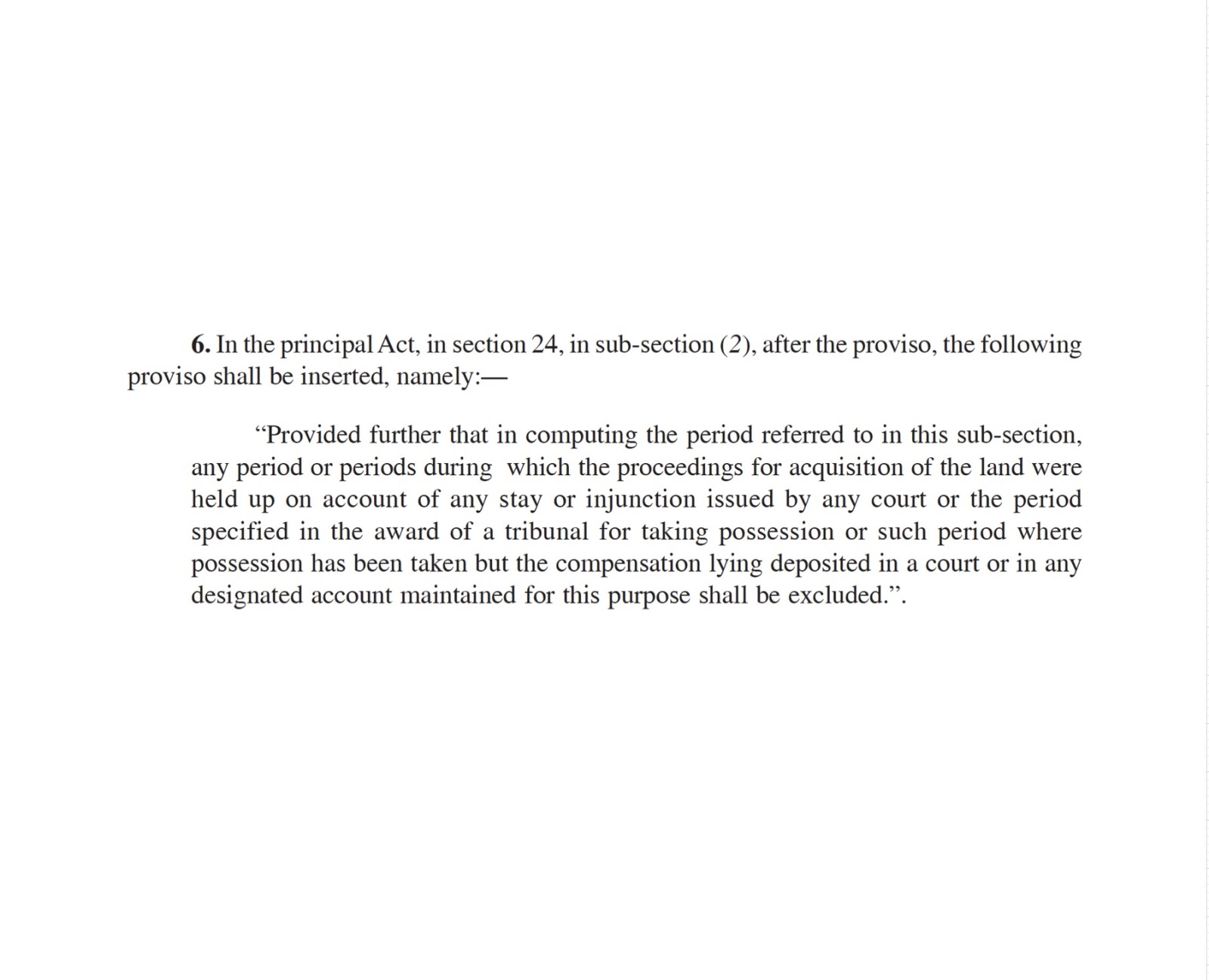
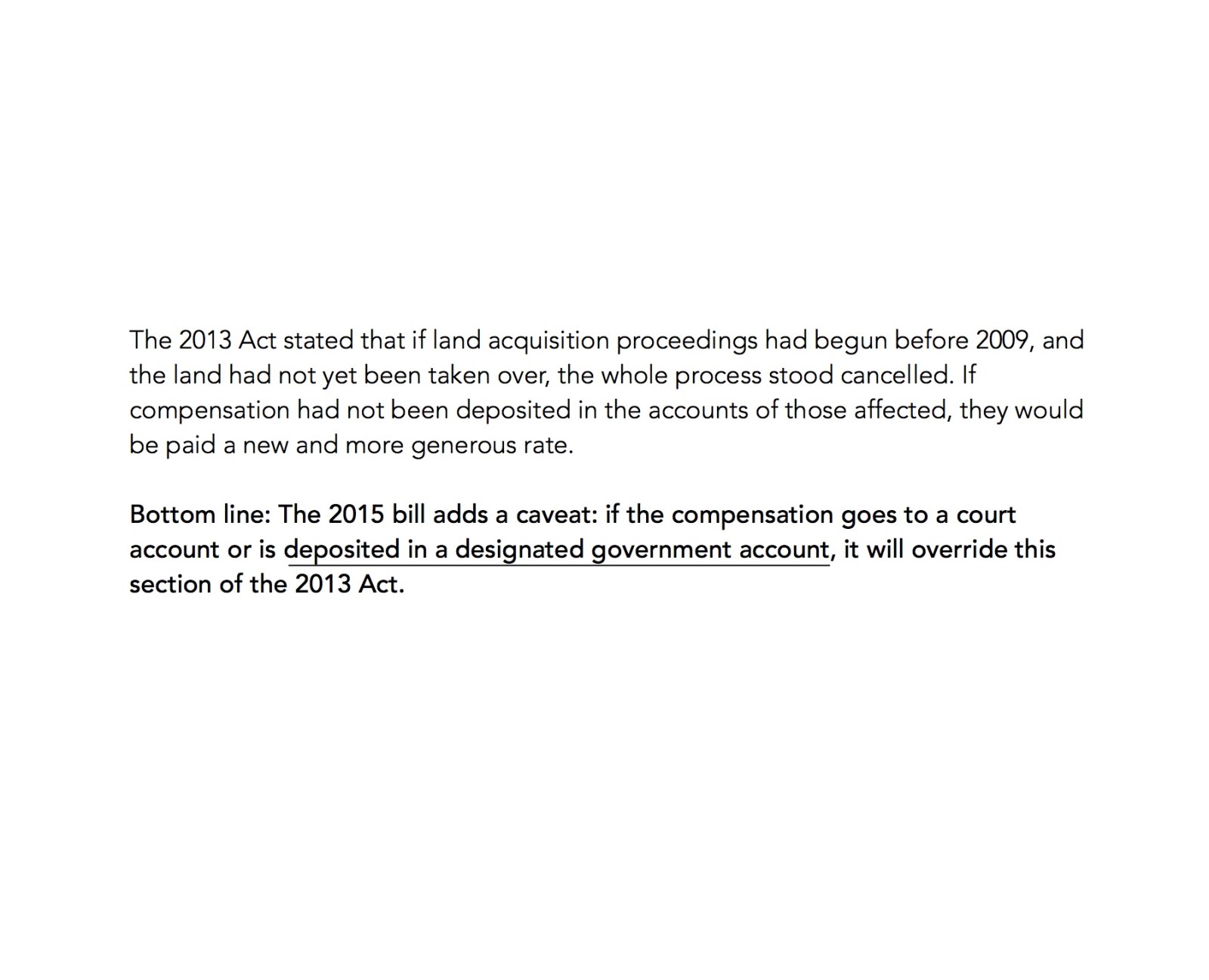
BARUN MITRA – 2013 had a unique provision. If land was not being used, it had to be returned to the original owner. The new bill says that if the money is put in a designated account, it will be deemed as given. The definition of compensation defined by the Supreme Court was that if an amount was deposited in the court for this purpose, it would be deemed as having been distributed. Now the new section says that the amount paid into any designated account which is maintained for this purpose shall be sufficient to disqualify a person from having his land returned because it will be deemed as the money has been distributed. That means the matter is settled. Earlier, a lot of people did not take the money. It happened in Singur. Some people don’t take the compensation because they may want more, or they may want to mobilize, and not taking the money makes them feel like they’re giving up something together.
The location of compensation hearings
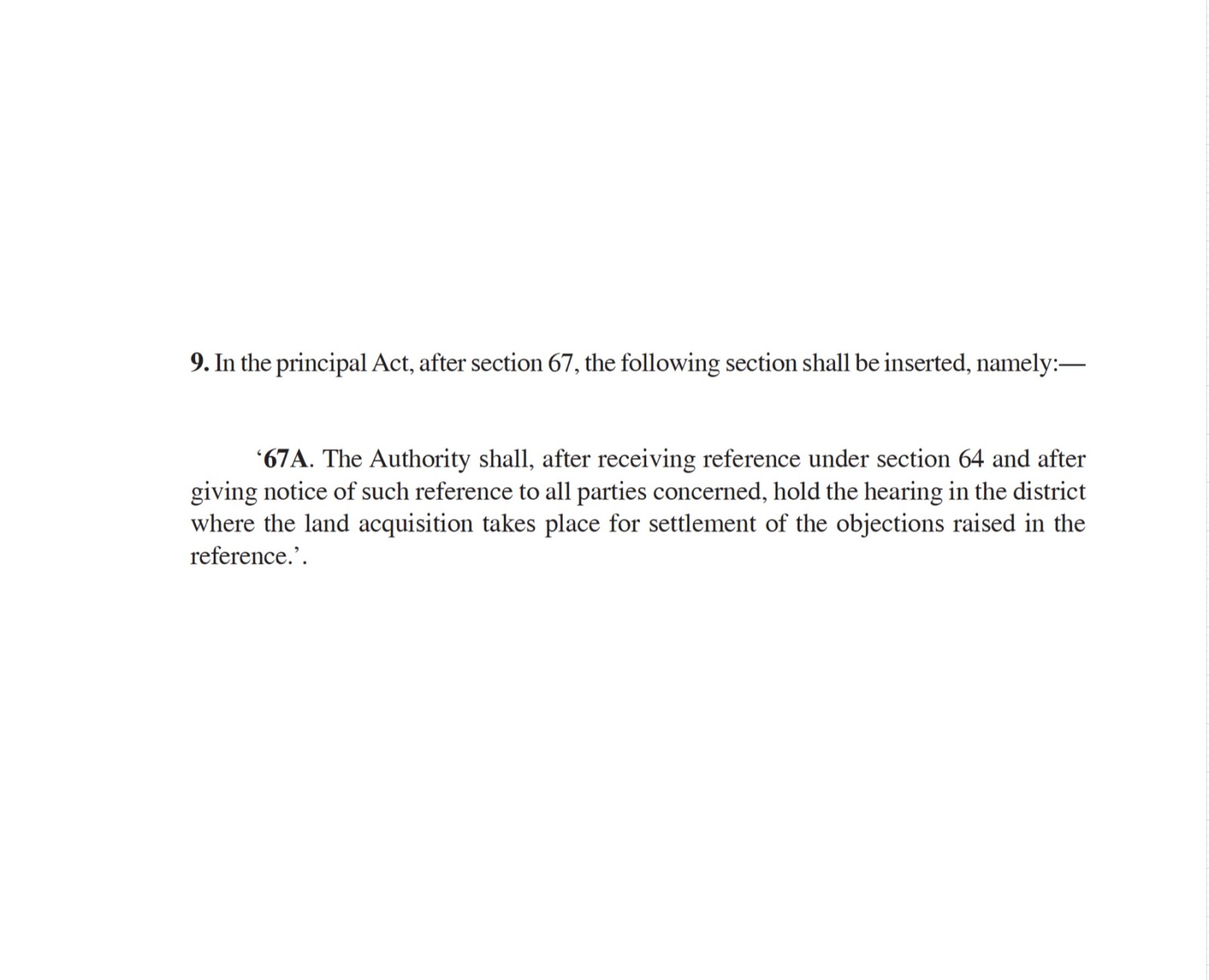
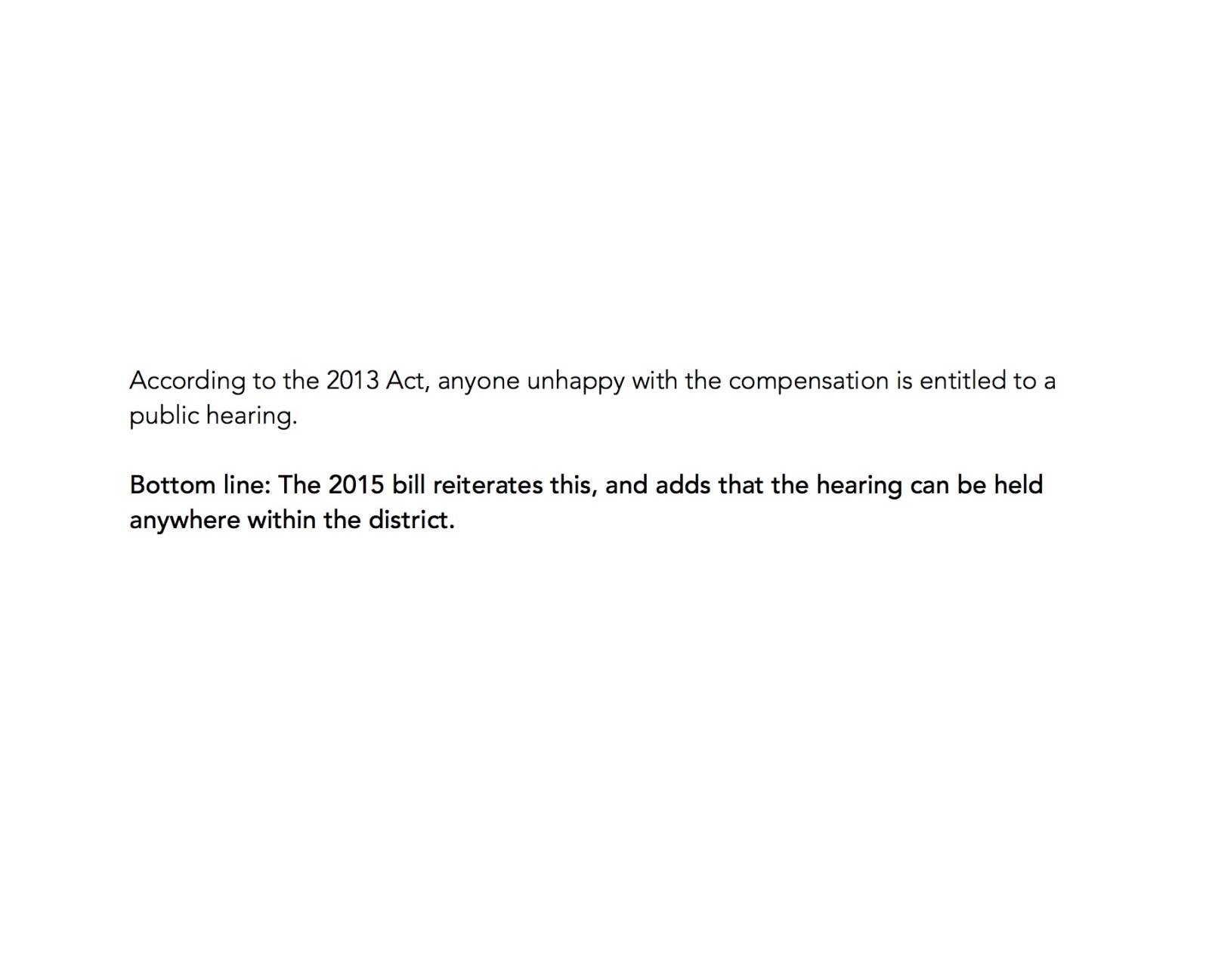
BARUN MITRA – This point already exists within the existing 2013 Act. Here they’re only underscoring that ‘look, we’re giving a hearing to everybody’ for political reasons. The only question is about the operational part of it. If the hearing is at the collector’s office, who will come? It has to be held in a more accessible environment, not where people are uncomfortable going. They’re unaccustomed to that kind of formal setting. The place and nature of hearings will affect the quality of feedback. But this is unlikely to be officially acknowledged. [While the 2013 Act did not specify where a compensation hearing should be held,] some of these issues are perhaps decided more by the spirit rather than the letter of the law. The 2013 law had a very different social political context, and therefore is being interpreted differently, than the 2015 law.




